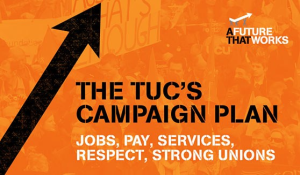Piggy-banks are underpinning UK recovery, says TUC
Falling household savings are underpinning the UK’s economic recovery and preventing it from sliding back into recession, according to new analysis published by the TUC on Wednesday.
The study reveals how recent fragile signs of recovery have coincided with a 43 per cent fall in family saving, which is now at its lowest level in four years.
The TUC analysis shows that between March 2012 and March 2013 the proportion of income that families put away dropped from £20.1bn to £11.4bn. Over this same period, consumer spending increased by 4.2 per cent from £253.3bn to £264.0bn. This in turn helped the economy grow by 0.3 per cent. However, had saving rates remained the same during these five quarters, household spending would have been £9bn lower and GDP £5.9bn lower.
This in turn would have seen the economy contract by 1.3 per cent and slip back into recession, the analysis reveals.
The TUC says the findings highlight how fragile the UK’s recovery is and warned that relying upon families to raid their savings was not a sustainable option for ministers.
Instead of boasting about how the economy is on the mend, the Chancellor should be doing more to boost household incomes to secure long-term growth, says the TUC.
TUC General Secretary Frances O’Grady said: ‘This analysis shows that Britain’s fragile recovery is being propped up by families raiding their piggy-banks.
‘While any signs of growth are welcome, it looks like recent news has been driven by running down savings and government propping up the housing market. This is hardly a sustainable route to recovery, and looks too much like a repeat of trends that drove the crash.
‘A sustainable recovery needs to be based on growth, investment and a recovery in living standards. That’s why Britain needs a pay rise.’

